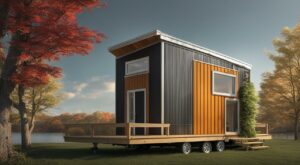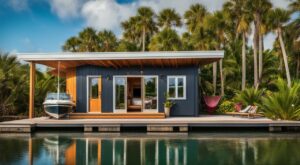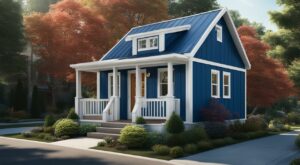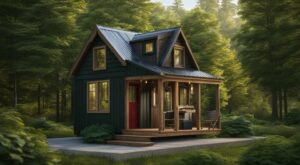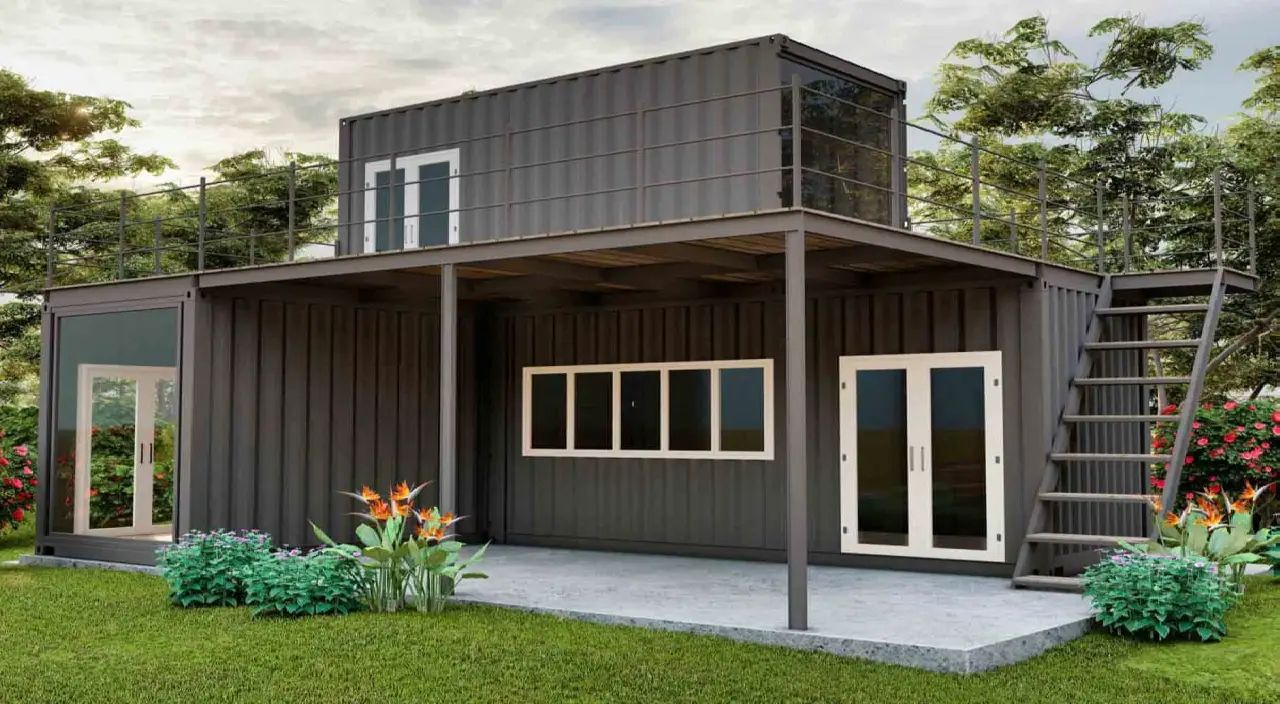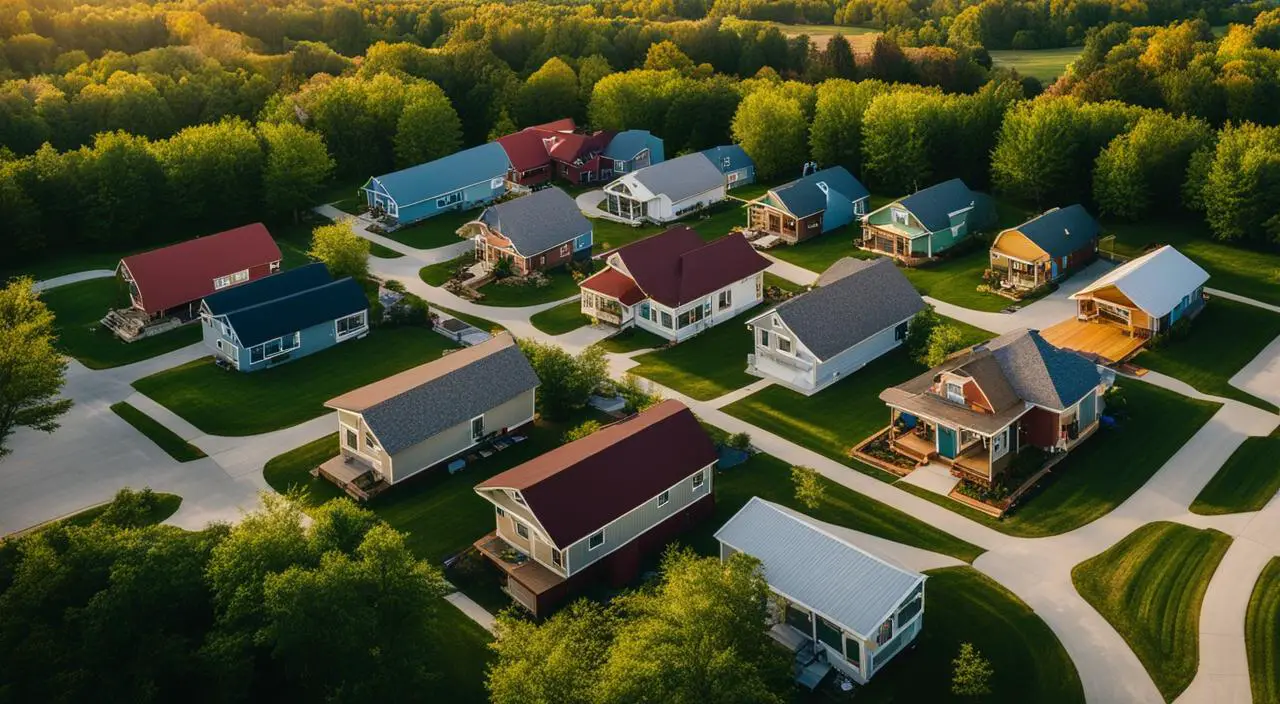Your cart is currently empty!
Tiny House Laws in Massachusetts: The Ins and Outs
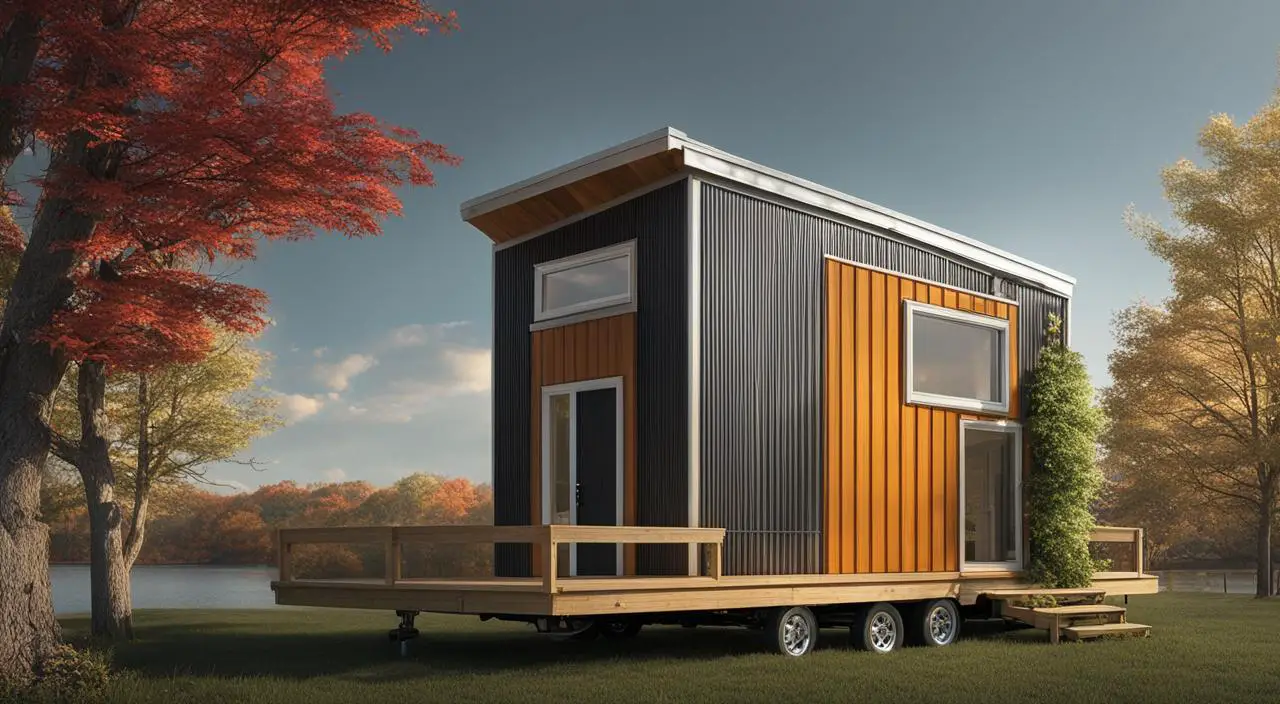
Affiliate Disclaimer: This post may contain affiliate link or links
With the rise of the tiny house movement, it’s important to understand the regulations and legal requirements surrounding these small homes.
In Massachusetts, there are specific laws that govern the construction and placement of tiny houses, including zoning regulations, building codes, and permits.
Contents
Understanding these laws is crucial for anyone interested in building or living in a tiny house in the state.
Whether you’re looking to downsize, reduce your carbon footprint, or save money, tiny houses offer an appealing alternative to traditional homes.
However, before embarking on a tiny house project, it’s important to research Massachusetts’ laws and regulations to ensure compliance.
Are Tiny Houses Legal in Massachusetts?
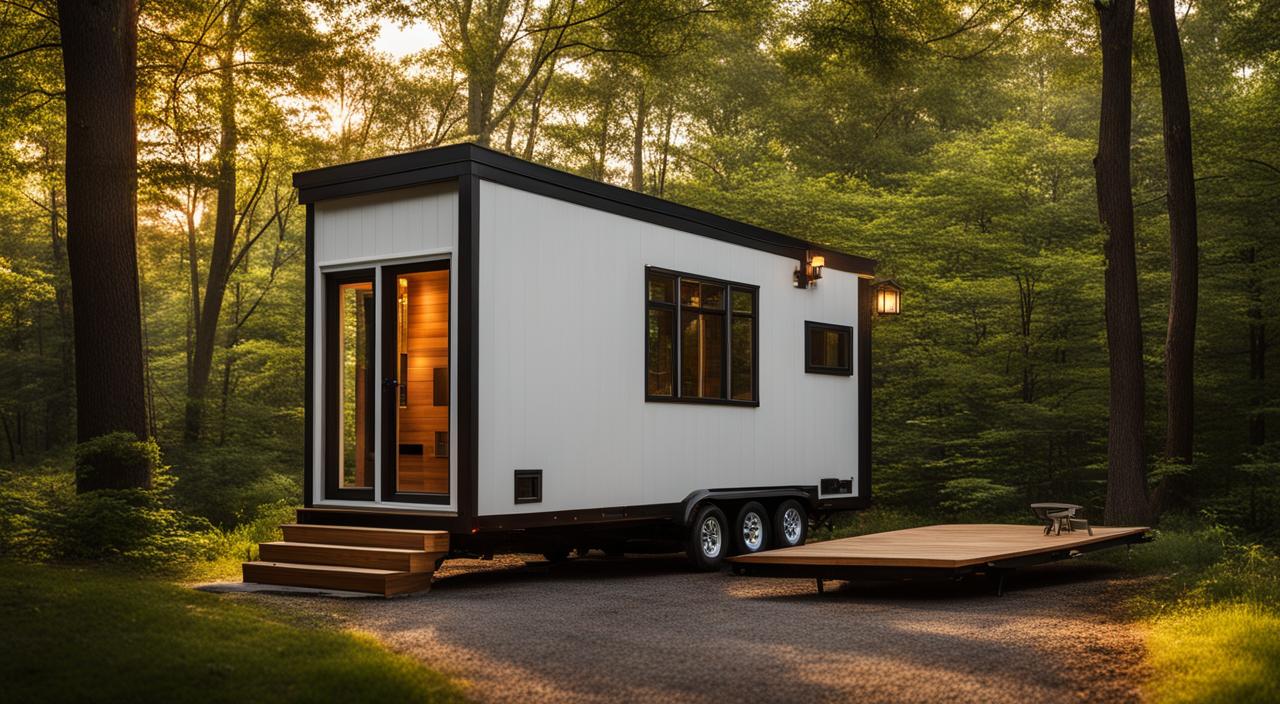
Tiny houses have gained popularity across the United States as a more affordable and sustainable housing option.
However, before embarking on building or living in a tiny house in Massachusetts, it’s crucial to understand the legal requirements involved.
So, are tiny houses legal in Massachusetts?
Yes, tiny houses are legal in Massachusetts, but several legal requirements, zoning laws, building codes, and permits are necessary for constructing and residing in a tiny house.
What are the legal requirements for tiny houses in Massachusetts?
According to the Massachusetts Housing Rules and Regulations, a tiny house has to meet the state building code requirements for one- and two-family dwellings.
These requirements include building, electrical, plumbing, gas, and energy conservation codes.
What are the zoning laws for tiny homes in Massachusetts? Zoning regulations for small homes in Massachusetts vary between municipalities.
Some cities and towns allow tiny houses as accessory dwelling units (ADUs), while others only permit them as a primary residence on a foundation.
Before constructing or living in a tiny house, individuals should research the zoning laws in their municipality and determine whether they need any special permits.
What building codes apply to tiny houses in Massachusetts?
Building codes for tiny houses in Massachusetts are primarily based on the International Residential Code (IRC).
These codes cover an array of aspects, including the minimum ceiling height, staircase requirements, and fire safety regulations.
Additionally, tiny houses on wheels must meet the American National Standards Institute (ANSI) code for recreational vehicles.
What permits are necessary for tiny home construction in Massachusetts?
Permits for tiny home construction in Massachusetts depend on the municipality where an individual wants to build the tiny house.
Individuals should contact the local government to learn more about the specific permits required for their tiny house’s construction.
The cost of these permits varies from town to town but usually ranges from a couple hundred to a few thousand dollars.
Overall, while tiny houses are legal in Massachusetts, individuals looking to build or live in one must navigate several legal requirements, zoning laws, building codes, and permits.
Understanding these regulations will help ensure a smooth and compliant living experience within the state.
Zoning and Building Codes for Tiny Homes in Massachusetts
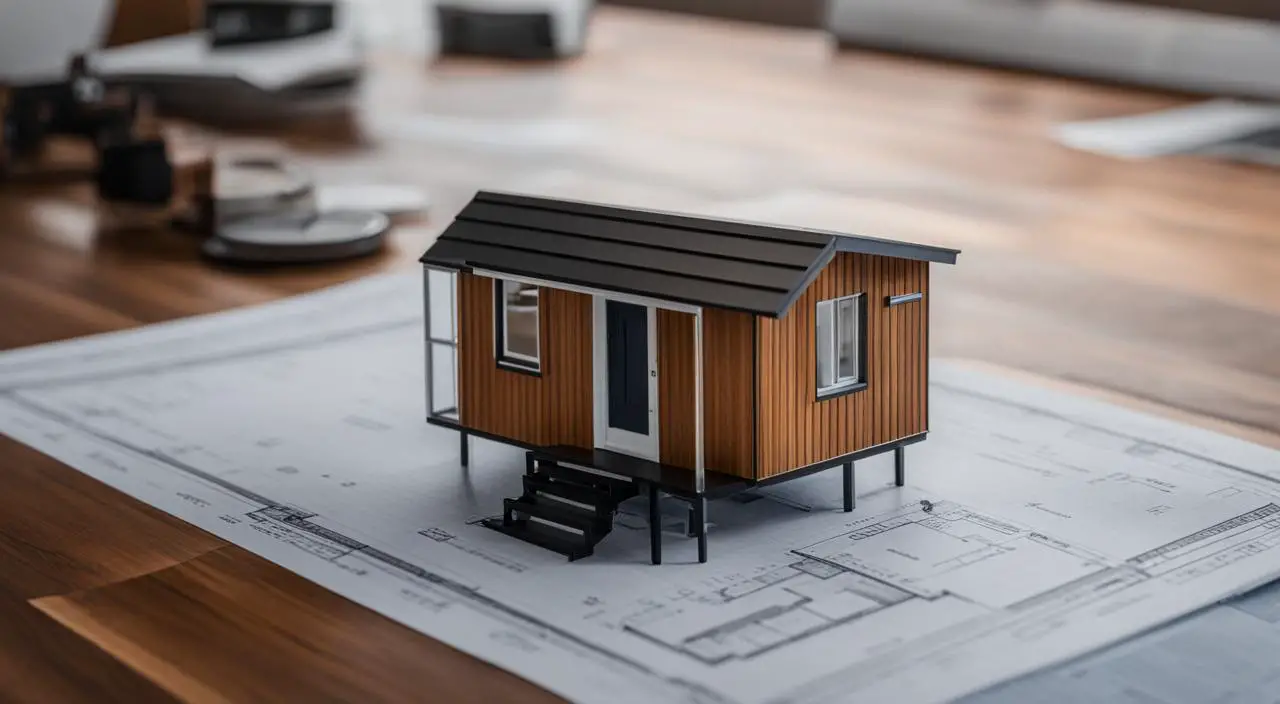
Understanding the zoning and building codes for tiny homes in Massachusetts is crucial for anyone considering living in one of these unique and affordable dwellings.
Massachusetts has local regulations surrounding tiny house communities, permits, and minimum square footage requirements.
Firstly, zoning laws for tiny homes in Massachusetts can vary by county and city. It’s important to check with the local government to understand any specific regulations and requirements that may be in place.
These zoning laws will determine where tiny homes can be located and will often require certain setbacks from property lines or other buildings.
Additionally, Massachusetts has tiny house community regulations that any new tiny house community must comply with.
For instance, the community must provide common open space and be connected to a public sewer or water system.
These regulations are in place to ensure the safety and welfare of the people living in the community.
Legal requirements for tiny houses in Massachusetts include obtaining the necessary permits for both building and living in a tiny house.
Some cities and towns in Massachusetts allow accessory dwelling units (ADUs), but they must comply with the state building code.
Furthermore, the minimum square footage for tiny houses in Massachusetts is 150 square feet, and they must be built on a foundation or on wheels that meet specific safety standards.
Parking regulations for tiny houses in Massachusetts can also be quite specific.
Depending on the location, Massachusetts residents may need to apply for a parking permit or obtain a designated parking spot for their tiny house.
In summary, Massachusetts has a set of unique zoning and building codes for tiny homes.
It’s essential to understand these codes and regulations before embarking on building or living in a tiny house in Massachusetts.
Permits and Legal Considerations for Tiny House Construction in Massachusetts
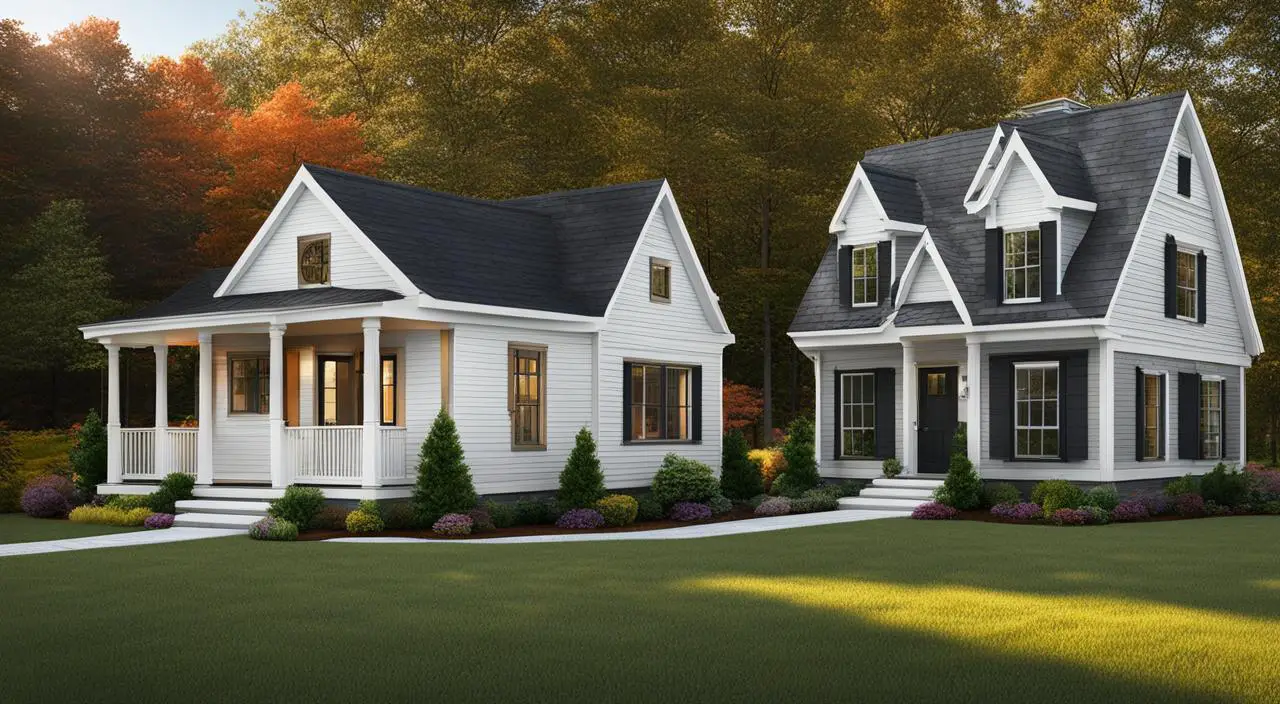
Building a tiny house in Massachusetts requires careful attention to legal considerations and obtaining necessary permits. These requirements help ensure compliance with local and state regulations.
Massachusetts tiny house building codes: In Massachusetts, tiny houses are subject to the same building codes as traditional houses.
These codes include standards for electrical, plumbing, and heating systems, as well as safety regulations.
It is important to research and comply with all relevant building codes to ensure safe and legal construction of a tiny house.
Legal considerations for tiny houses in Massachusetts: Local and state zoning regulations and building codes apply to tiny houses in Massachusetts.
Additionally, it is important to consider the legal implications of living in a tiny house, such as insurance requirements and property tax implications.
Tiny house living in Massachusetts: Individuals interested in living in a tiny house in Massachusetts should research the legal requirements for establishing a tiny house as a primary residence.
This may include obtaining a Certificate of Occupancy from the local building department. It is also important to comply with local parking regulations for tiny houses.
Tiny house communities in Massachusetts: Massachusetts has specific regulations for the establishment of tiny house communities.
These communities must comply with zoning regulations and obtain necessary permits from the local building department.
Some communities may also have specific requirements for minimum square footage and parking facilities for tiny homes.
When building a tiny house in Massachusetts, it is important to consult with local building officials and obtain all necessary permits and approvals.
This helps ensure compliance with local and state regulations and a smooth construction process.
Affordable Housing Options and Tiny House Legislation in Massachusetts
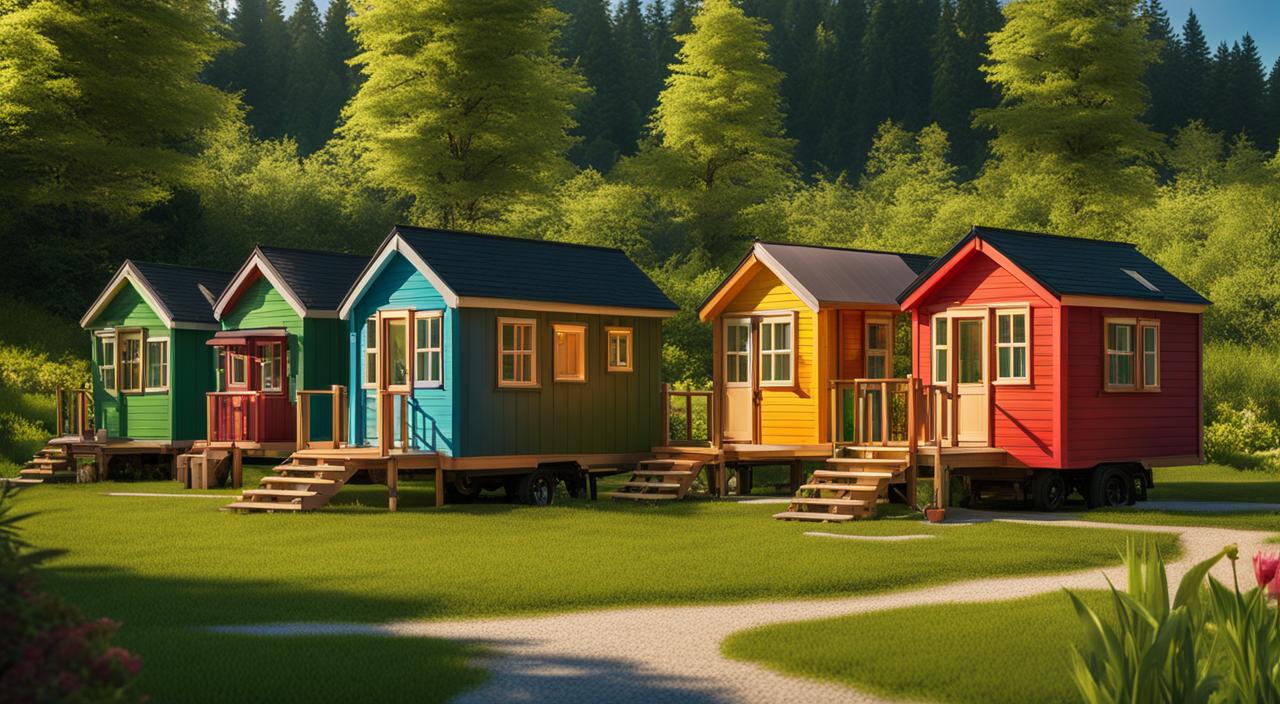
As housing affordability becomes a growing concern in Massachusetts, tiny houses have emerged as a possible solution.
The state regulations for tiny houses aim to balance public safety, livability, and affordability.
Legal requirements for building tiny houses in Massachusetts are similar to those for traditional homes.
Zoning regulations for tiny homes in Massachusetts vary by municipality, and some areas may prohibit tiny houses altogether.
Prospective tiny homeowners must comply with the permits for tiny house construction required by their local building departments.
A variety of affordable housing options are available in Massachusetts, including tiny houses, micro-apartments, and accessory dwelling units (ADUs).
ADUs provide an opportunity for tiny house residents to comply with zoning regulations, and they can be constructed in most residential areas, provided they meet the legal requirements.
| Zoning Regulations for Tiny Homes in Massachusetts | Legal Requirements for Building Tiny Houses in Massachusetts |
|---|---|
| Varies by municipality | Similar to those for traditional homes |
| May prohibit tiny houses altogether in some areas | Compliance with local building permits is required |
According to the Massachusetts Tiny House Association, tiny houses can serve as a cost-effective solution to the state’s affordable housing crisis.
The association advocates for tiny houses as an alternative to high-cost apartments and single-family homes, making homeownership accessible for those on a tight budget.
However, proponents of tiny houses also face challenges in the current housing market.
A lack of available land, zoning restrictions, and financing barriers may limit the feasibility of tiny house living for some individuals.
- Prospective tiny homeowners must comply with zoning and building codes for tiny houses in Massachusetts.
- ADUs provide an opportunity for tiny house residents to comply with zoning regulations and can be constructed in most residential areas.
- Tiny houses offer a cost-effective solution to the state’s affordable housing crisis.
- Financing barriers and zoning restrictions may limit the feasibility of tiny house living for some individuals.
Despite the challenges, interest in tiny houses as a housing option is growing.
As more residents look for affordable, sustainable, and minimalist living options, the state regulations for tiny houses in Massachusetts may evolve to reflect these needs.
Advantages and Challenges of Tiny House Living in Massachusetts
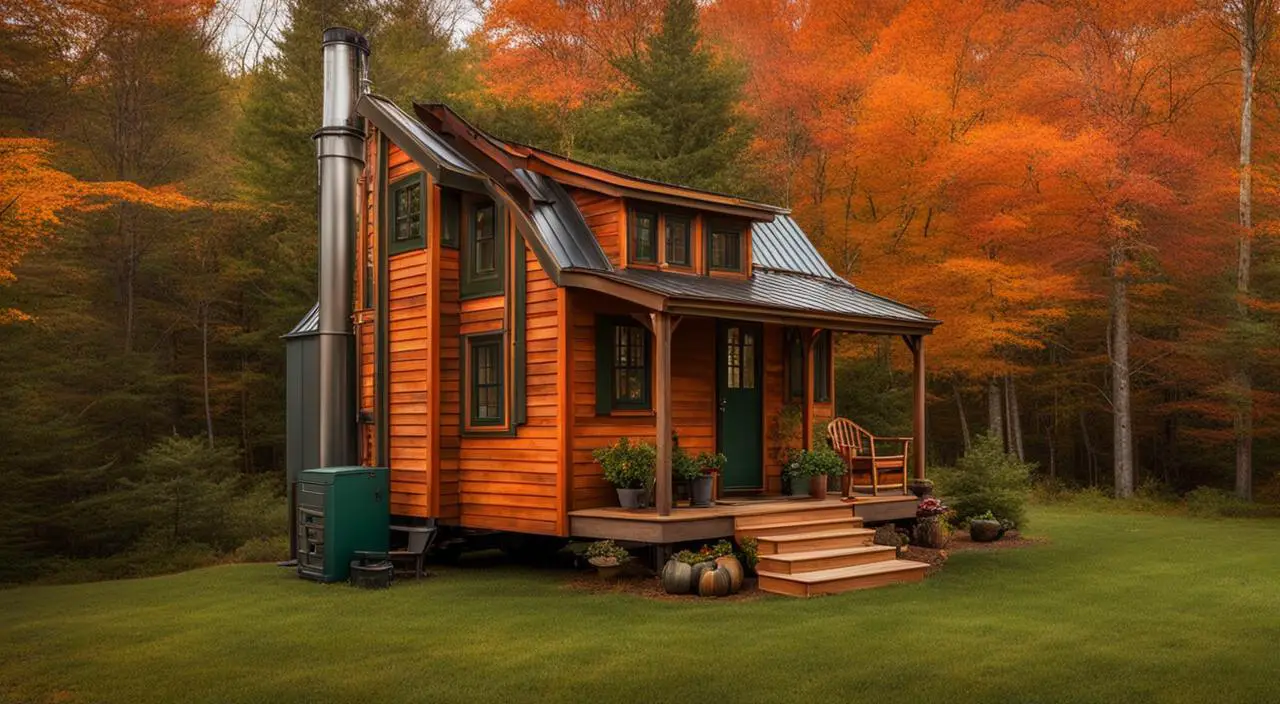
Living in a tiny house has its advantages and challenges, and it is important for individuals to consider both before deciding if it is the right choice for them.
Massachusetts housing laws have specific regulations for tiny houses, including those on wheels, and it is crucial to comply with them to avoid any legal issues.
One significant advantage of tiny house living is the cost.
The price of building and maintaining a tiny house is significantly lower than that of a traditional home, making it an attractive option for those seeking affordable housing.
Additionally, tiny houses are typically more environmentally sustainable, requiring less energy and resources to build and maintain.
Another advantage of tiny house living is the flexibility it offers. Tiny houses on wheels allow for mobility and the ability to travel on a whim.
This is attractive to those who enjoy the freedom of being able to choose their location and change it easily.
Tiny houses also require less cleaning and maintenance, freeing up time for other pursuits and activities.
However, there are also challenges associated with tiny house living. One major challenge is the limited space.
Massachusetts tiny house on wheels laws mandate that the maximum square footage for a tiny house is 400 square feet.
This means that residents must be prepared to downsize their possessions and adapt to a smaller living environment.
Another challenge is finding a place to park a tiny house.
Zoning regulations for tiny houses in Massachusetts can be strict, and finding a suitable location to park a tiny house can be difficult.
Additionally, parking and utility hookups for tiny homes can be expensive and time-consuming to set up.
It is also important to consider the legal considerations for tiny houses in Massachusetts.
Small house regulations in Massachusetts must be followed, and building codes for tiny houses must be complied with.
Permits for tiny house construction must also be obtained before beginning any building or renovation projects.
Failing to comply with these requirements can result in fines and legal repercussions.
The Bottom Line
While tiny house living offers many advantages, it is important to carefully consider the challenges as well.
Massachusetts housing laws have specific regulations for tiny houses, and it is crucial to comply with them to avoid any legal issues.
Ultimately, whether or not tiny house living is the right choice depends on individual preferences and circumstances.
Tiny House Associations and Builders in Massachusetts
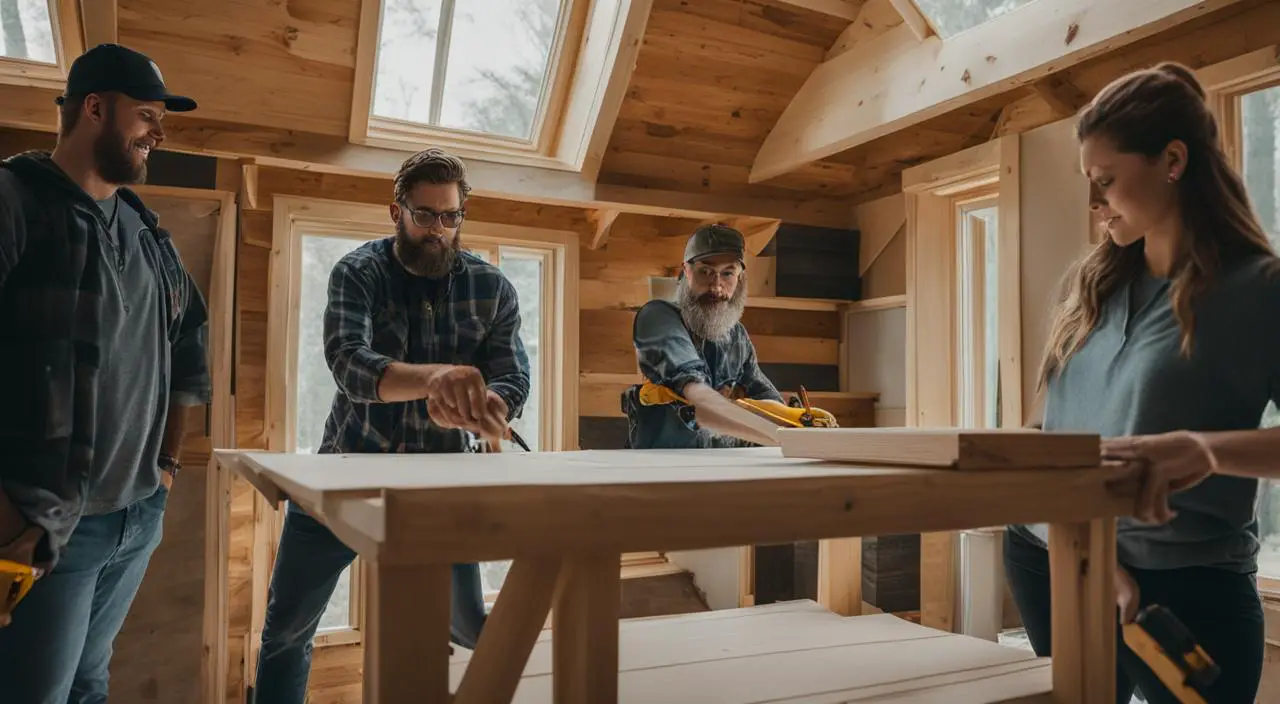
For those interested in building or owning a tiny house in Massachusetts, it’s important to have access to reliable information and resources.
Fortunately, there are several tiny house associations and builders in the state dedicated to supporting tiny house enthusiasts.
The Tiny House Association of Massachusetts is a non-profit organization that advocates for tiny house living in the state.
The association provides information on Massachusetts tiny house legislation, building codes, permits for tiny home construction, as well as resources for finding tiny house builders.
Several Massachusetts-based tiny house builders offer custom-built tiny homes tailored to individual needs and preferences.
Minimaliste Houses is a Quebec-based tiny house builder that services Massachusetts. Their website offers a range of models and floor plans to choose from and customizable options.
Accomplished Builders is another Massachusetts-based tiny house builder that offers both custom and pre-made tiny homes. Their website includes photos and descriptions of their available models and services.
| Tiny House Association/Business | Services Provided | Contact Information |
|---|---|---|
| Tiny House Association of Massachusetts | Advocacy, information on tiny house legislation and codes, resources for finding builders | Website: https://tinyhousema.org/ |
| Minimaliste Houses | Custom-built tiny homes, pre-made models, customizable options | Website: https://minimalistehouses.com/ |
| Accomplished Builders | Custom-built tiny homes, pre-made models | Website: https://www.accomplishedbuilders.com/tiny-house-builders-ma/ |
When working with a tiny house builder, it’s important to ensure they are familiar with Massachusetts-specific building codes, permits, and zoning regulations for tiny homes.
Parking and utility hookups for tiny homes can also vary depending on the location, so it’s important to research and understand the regulations in your specific area.
Accessory Dwelling Units (ADUs) in Massachusetts
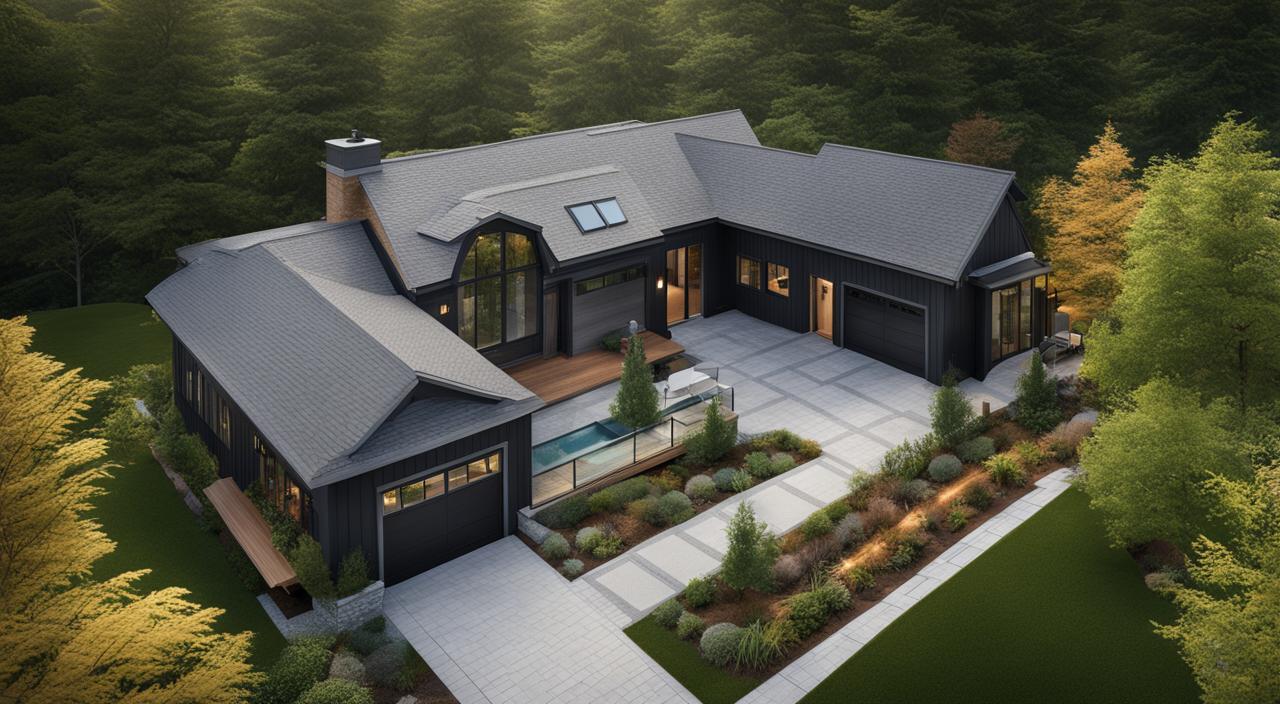
Accessory Dwelling Units (ADUs) are small secondary dwellings located on the same lot as a primary residence.
In Massachusetts, ADUs are subject to the same zoning regulations and building codes as traditional homes.
The Massachusetts state government has taken an active role in promoting ADUs as a form of affordable housing.
In fact, Massachusetts was one of the first states in the country to adopt a law specifically aimed at encouraging the construction of ADUs.
While ADUs are subject to the same building codes as traditional homes, the regulations for permits and zoning can vary by town or city.
It is important to check with local building departments to determine specific regulations for ADUs in your area.
| Type of ADU | Regulations |
|---|---|
| Attached | Must have a separate entrance and meet minimum square footage requirements |
| Detached | May be subject to additional regulations, such as setback requirements and size limits |
It is important to note that ADUs are not the same as tiny houses.
While both may be small in size, ADUs are typically designed as permanent living spaces and are subject to different regulations.
However, for those interested in tiny house living in Massachusetts, an ADU could be a potential option to consider.
By designing a tiny house as an ADU, it may be possible to meet the necessary regulations and zoning requirements while still achieving a minimalist lifestyle.
County and Local Regulations for Tiny Houses in Massachusetts
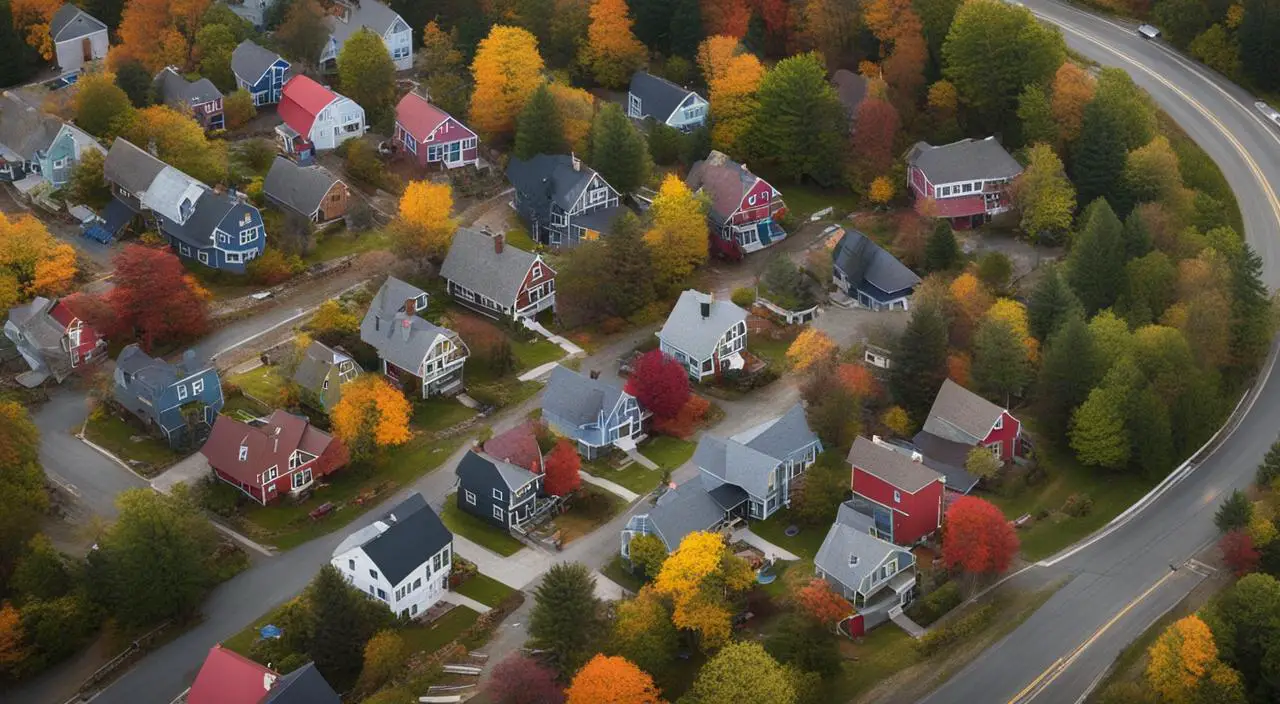
While Massachusetts has state-level regulations for tiny houses, individual counties and municipalities may have additional requirements or restrictions.
It is important to research and adhere to these regulations when planning to construct or live in a tiny house in Massachusetts.
Local Zoning Regulations and Building Codes
Many counties and municipalities have their own zoning regulations and building codes that must be followed when constructing a tiny house.
It is important to research and understand these regulations before beginning construction to ensure compliance.
This may involve obtaining additional permits or adhering to specific size or design requirements.
Tiny Home Permits: County and Local Requirements
Some counties and municipalities in Massachusetts require specific permits for tiny homes.
These may include permits for electrical or plumbing systems, as well as permits for the placement of the home on a particular piece of property.
It is important to research and obtain any required permits before moving into or constructing a tiny house.
Local Builders and Residential Appendix
Working with a local builder who is familiar with the regulations and requirements of the county or municipality can be an asset when constructing a tiny house in Massachusetts.
Utilizing the residential appendix of the local building code can also provide guidance and clarification on specific regulations.
It is important to research and adhere to any county or municipal regulations when planning to construct or live in a tiny house in Massachusetts. Failure to comply with these regulations can result in fines or legal issues.
Tiny House Living Guidelines in Massachusetts
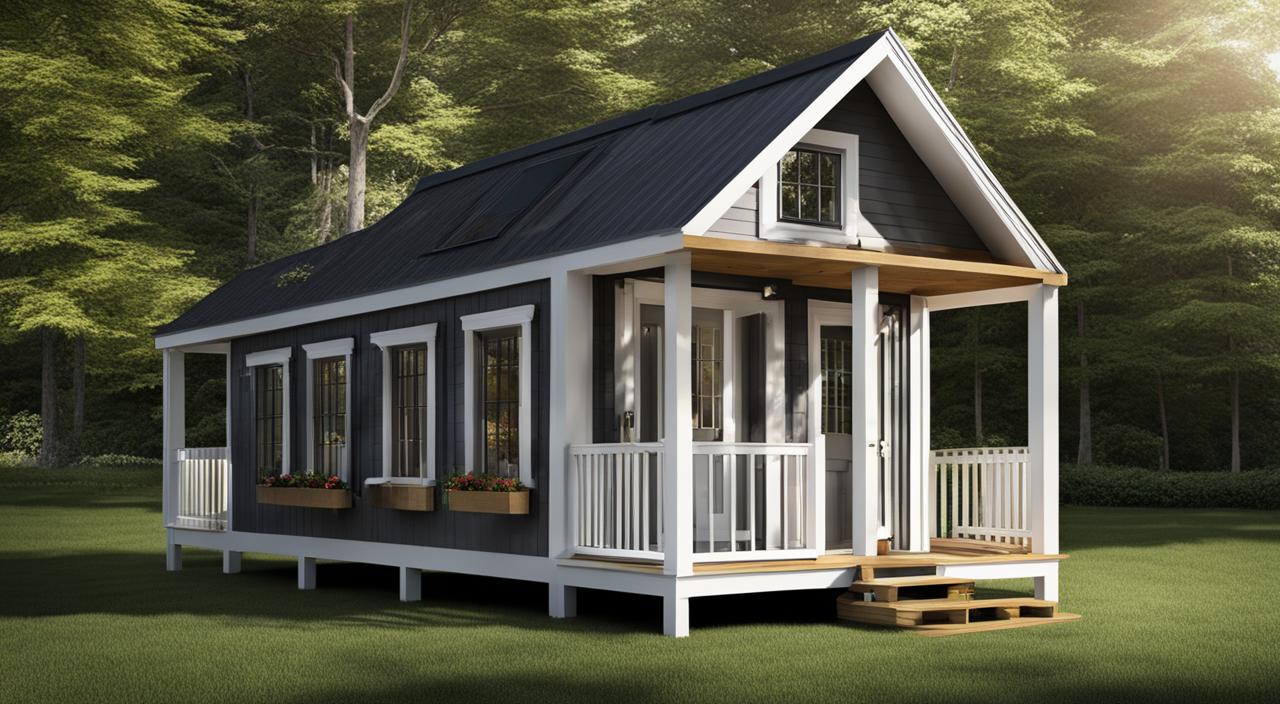
If you’re considering living in a tiny house in Massachusetts, it’s important to familiarize yourself with the guidelines and regulations for doing so.
This section will highlight the key guidelines and regulations to keep in mind.
Parking Regulations for Tiny Houses in Massachusetts
When it comes to parking your tiny house in Massachusetts, the regulations will depend on whether the house is on wheels or a permanent foundation.
If it’s on wheels, it may be considered an RV and subject to RV parking regulations. It’s important to research the specific regulations in your area to ensure compliance.
Zoning Regulations for Tiny Houses in Massachusetts
Zoning regulations can vary widely depending on the location of your tiny house in Massachusetts.
In general, tiny houses may be allowed in residential areas, but may be subject to minimum size requirements or other restrictions.
It’s important to check with your local zoning department to understand the specific regulations in your area.
Building Codes for Tiny Houses in Massachusetts
Like zoning regulations, building codes can vary depending on the area in Massachusetts where you plan to construct your tiny home.
In general, tiny houses must comply with the same building codes as traditional homes. This may include regulations on plumbing, electrical, and structural systems.
Legal Requirements for Tiny Homes
In addition to zoning and building code regulations, there may be legal requirements specific to tiny homes in Massachusetts.
For example, if your tiny home is on wheels, it may be subject to additional regulations related to trailer registration or weight limits.
It’s important to research the specific legal requirements in your area.
“Living in a tiny house can be a rewarding experience, but it’s important to do your research and understand the guidelines and regulations in your area to ensure compliance.”

Conclusion
This article has provided a detailed overview of the tiny house laws in Massachusetts, covering a range of important topics including legal requirements, zoning regulations, building codes, and permits necessary for constructing and living in a tiny house in the state.
By understanding these regulations, individuals can navigate the process of building and living in a tiny house in Massachusetts with confidence.
Benefits of Tiny House Living in Massachusetts
Despite the legal complexities associated with tiny house living in Massachusetts, there are several benefits to choosing this lifestyle.
For many, the financial freedom and flexibility of tiny house living make it an attractive option.
Additionally, the environmental benefits of tiny house living, such as reduced resource consumption and carbon footprint, are appealing to those looking to live a more sustainable lifestyle.
Taking Steps Towards Tiny House Living in Massachusetts
Whether you’re considering building a tiny house in Massachusetts or are simply interested in exploring this lifestyle.
It’s important to do your research and familiarize yourself with the legal requirements and regulations surrounding tiny housing in the state.
By following the guidelines outlined in this article and working with local builders and associations, you can take concrete steps towards achieving your tiny house dreams.
Other related articles
- Tiny House Laws Indiana: Unlocking the Secrets
- Tiny House Laws in Massachusetts: The Ins and Outs
- Tiny House Laws Colorado: A Friendly Guide
- Tiny House Laws in Florida: Everything You Need to Know
- Understanding Tiny House Laws in Virginia: A Quick Guide
- Tiny House Laws Wisconsin: Understanding The Law

Arc. Joseph Benson the CEO of Free tiny homes, Free Tiny Homes is a free, open-source, collaborative resource for anyone interested in building their own tiny home…


